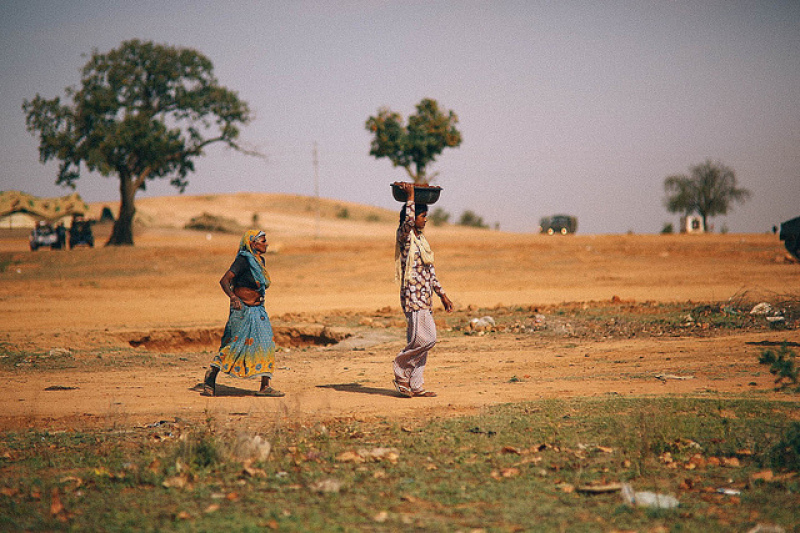
Christians in India were forcibly reconverted to pagan religion and were threatened to be beaten to death when they refused.
Believers fled Chhingur, a village in Bastar of the nation's Chhattisgarh state, after pagan worshippers pressured them to attend a re-conversion ceremony. The Christians who chose to remain in the area were then forced to worship false gods.
Speaking to Morning Star News, Raidhar Nag, one of the Christians who fled, revealed the harassment being done to them in their village.
"The village gathering threatened to beat us to death if we did not attend the ceremony. They stopped us from fetching water from the village well, obtaining the free government ration or even working in our own fields," he began.
Raidhar added that they were told to leave the place by its leaders. The four families of Christians who were left in the village were forced to attend the pagan ritual, worshipping the tribal deities. Sources also said that they were beaten twice.
Pastor Dularam Kashyap explained to the news outlet how the aggression started.
The pastor said that Lakhshhu Nag, a tribal animist, who had been sick for a year went to him for prayer, but died two days later in the hospital. When his body was brought back to the village on March 2, villagers did not allow Lakhshhu to be buried in their area, simply because he asked for prayer from the pastor.
During the argument, villagers assaulted the Christians. They also beat the pastor when he tried to intervene.
The Christians, together with Pastor Kashyap and Methodist Church Senior Pastor Ram Singh, reported the incident to Darbha police station. Police officers came at 8 p.m. that day, asking the villagers to allow the burial but they still refused. They said that Lakhshhu's burial should be done in another place where Christians are allowed, not in Chhingur.
When the officers left, believers were reportedly assaulted again.
The next day, the police escorted Lakhshhu's remains to Chaltipadar village, where he could be buried.
After the burial, village elders summoned the Christians and forced them to attend the Ghar Wapsi, a pagan "home coming" re-conversion ceremony. The believers tried to resist as much as they could but ultimately gave in.
On March 12, pastors Singh and Kashyap, along with other Christians and assisted by the Human Rights office, wrote a letter of complaint about the incident to the police station. The group also requested for a separate burial place for Christians in Chhingur.
Sinha, the officer in-charge of the police station claimed that the issue was already resolved after speaking to the two groups, the Christians and villagers.
"We went to the village and made both the parties understand to live cordially, and they have agreed to it. Now there is an atmosphere of peace in the village. Talks about a designated place of burial are underway. The investigation is not over yet," Sinha told Morning Star.
When asked about the forced re-conversion ceremony, the officer stated that the matter is between the villagers and should be sorted out among themselves.
The police officers did not file the First Information Reports for the forced conversion and assault complaints.
Christian leaders in the region of Bastar are concerned about the rising cases of persecution. Believers are pressured to deny their faith. Refusal would mean being forced to leave their homes and property, as well as disowning their families.
The region is said to be a hotbed of Maoist activities but Christians have been thriving in Bastar District for over 150 years, constituting to 1.98% of its population, per the 2011 census.
According to religious advocates, persecution of Christians worsened in the country after Prime Minister Narendra Modi rose into power in May 2014.
Open Doors' 2021 World Watch List ranks India as 10th most challenging country for Christians to live in.

































